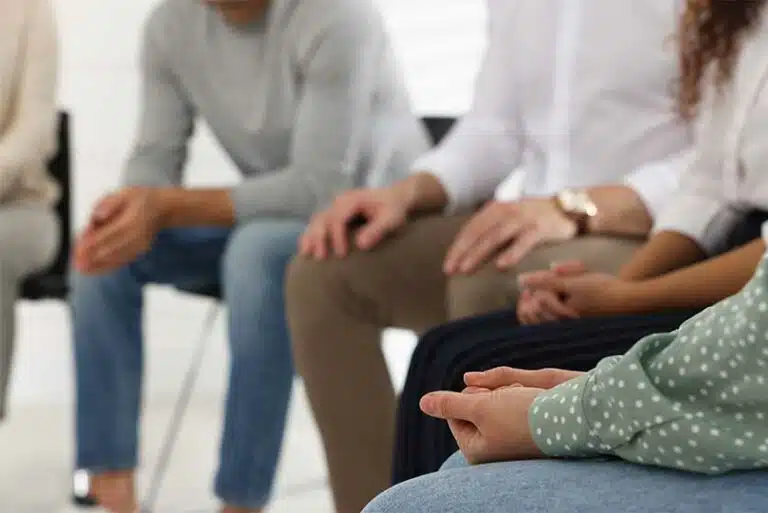Are There Affordable Or Low-Cost Drug Rehab Centers?
- Government Funded Rehab Programs
- Non-Profit Rehab Programs
- How To Choose A Low-Cost Rehab Center
- Other Ways To Make Rehab More Affordable

Drug addiction (substance use disorder) is treatable. Unfortunately, many people avoid treatment because they fear they can’t afford it. If you or someone you love is concerned about the cost of rehab, you have options, including low-cost addiction treatment centers.
While some luxury treatment facilities cost thousands of dollars per day, other facilities are much cheaper. The most affordable options include government-funded rehab programs and non-profit rehab programs.
Government-Funded Rehab Programs
A government-funded rehab program is an addiction treatment program that receives funding from the federal, state, or local government. Some of these programs are low-cost, while others are completely free.
To qualify for government-funded rehab, you must prove that you can’t afford traditional addiction treatment. To do so, you will need to provide documentation such as proof of income, proof of residence, and your medical records.
Non-Profit Rehab Programs
Non-profit rehab programs are funded by individuals or organizations, especially churches and other faith-based organizations. That means their treatment services may include religious or spiritual elements.
Some non-profit rehab programs are free, while others offer sliding scale payment options based on your income. As with government-funded rehab, you can only attend a non-profit rehab program after proving you can’t afford traditional treatment.
How To Choose An Affordable Or Low-Cost Drug Rehab Center
To find a government-funded or non-profit rehab program in your area, contact the Substance Abuse and Mental Health Services Administration (SAMHSA) National Helpline at 1-800-662-HELP (4357).
This free, 24/7 helpline offers treatment referrals and other information to support your addiction recovery.
Level Of Care
When choosing a low-cost or free rehab facility, make sure it offers the level of care you need.
Some programs offer inpatient treatment (also called residential treatment), which means you live at the rehab center. Other programs offer outpatient treatment, which means you live at home and frequently visit the rehab center. There are multiple types of outpatient programs, including:
- partial hospitalization programs (PHPs), in which you visit the rehab center most days of the week
- intensive outpatient programs (IOPs), in which you visit the rehab center multiple days a week
- standard outpatient program (OPs), in which you visit the rehab center at least once a week
Accreditation
In addition, look for a facility that has been accredited by an organization such as The Joint Commission (TJC) or The Commission on Accreditation of Rehabilitation Facilities (CARF).
Accreditation proves that the facility meet standards of care set by the addiction treatment industry.
Evidence-Based Treatment
Make sure the rehab center offers evidence-based treatments. An evidence-based treatment is any treatment option that has been scientifically proven to help people recover from drug abuse. Examples include:
- medical detoxification (also called medical detox)
- individual therapy
- group therapy
- medication-assisted treatment (MAT) for opioid or alcohol addiction
- aftercare planning
Co-Occurring Mental Health Issues
Finally, if you have a co-occurring mental health condition (such as depression, bipolar disorder, or PTSD), choose a program that offers dual diagnosis treatment. This type of treatment addresses addiction and co-occurring disorders at the same time.
Other Ways To Make Rehab More Affordable
While low-cost rehab centers can be highly effective, you might have trouble finding one that offers all of the services you need. In that case, consider using these methods to make traditional rehab more affordable:
Health Insurance
Under the Affordable Care Act (ACA), all insurance plans (including private insurance, Medicaid, and Medicare) must cover some or all of the cost of rehab.
To determine how much coverage you will receive, contact your insurance provider and the rehab facility you wish to attend.
Sliding Scale Payment Options
Like non-profit rehab programs, some traditional rehab programs offer sliding scale payment options for people with low incomes.
Fundraising
Consider asking your loved ones if they can help cover the cost of treatment. You could also start an online fundraiser through a platform such as GoFundMe
Loans
Some people pay for rehab using a credit card or bank loan. If you choose this option, try to find a card or loan with a low interest rate so you can pay it off more easily.
Scholarships
Some rehab programs offer scholarships for people with low incomes. You can also apply for an addiction treatment scholarship from a non-profit organization such as 10,000 Beds.
Cheaper Alternatives To Rehab
If you still have trouble finding affordable treatment, consider attending a support group. The most popular support groups for addiction recovery include:
- Alcoholics Anonymous (AA)
- Narcotics Anonymous (NA)
- LifeRing Secular Recovery
- SMART Recovery
- Women for Sobriety
Most of these groups offer in-person meetings and virtual meetings, both of which are free. At each meeting, you learn about the basics of recovery and connect with people who understand your struggles.
While a support group can’t replace a traditional rehabilitation program, it can help you get started on the path to recovery.
You may also be able to find an affordable therapist who can help you create a personalized addiction treatment plan. Like a support group, individual therapy can’t replace rehab, but it can help prepare you for it.
To learn more about paying for drug and alcohol rehab, please reach out to an Ark Behavioral Health specialist. Our board-certified healthcare providers offer a variety of substance abuse treatment options to help you or your loved one stay sober.
Written by Ark Behavioral Health Editorial Team
©2024 Ark National Holdings, LLC. | All Rights Reserved.
This page does not provide medical advice.
Questions About Treatment?
Ark Behavioral Health offers 100% confidential substance abuse assessment and treatment placement tailored to your individual needs. Achieve long-term recovery.
100% confidential. We respect your privacy.
Prefer Texting?
Our friendly support team is here to chat 24/7. Opt out any time.







 Learn More
Learn More








